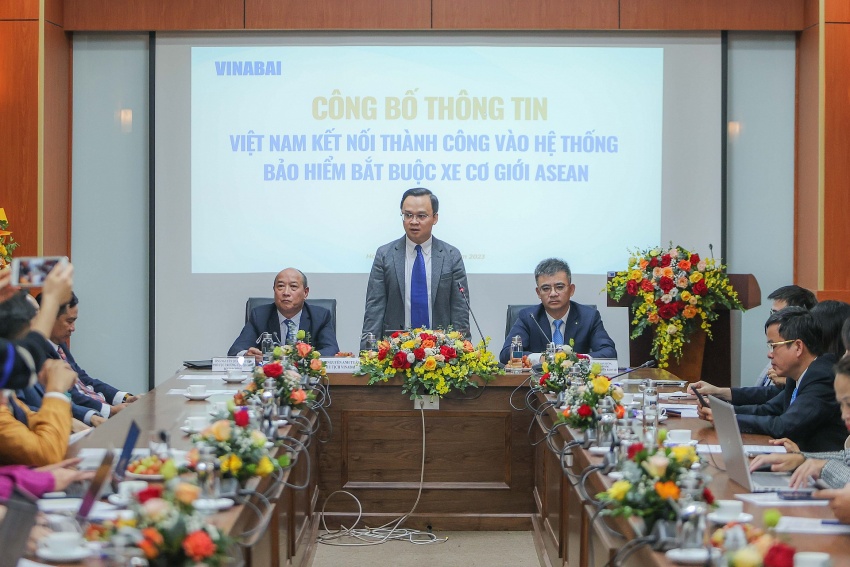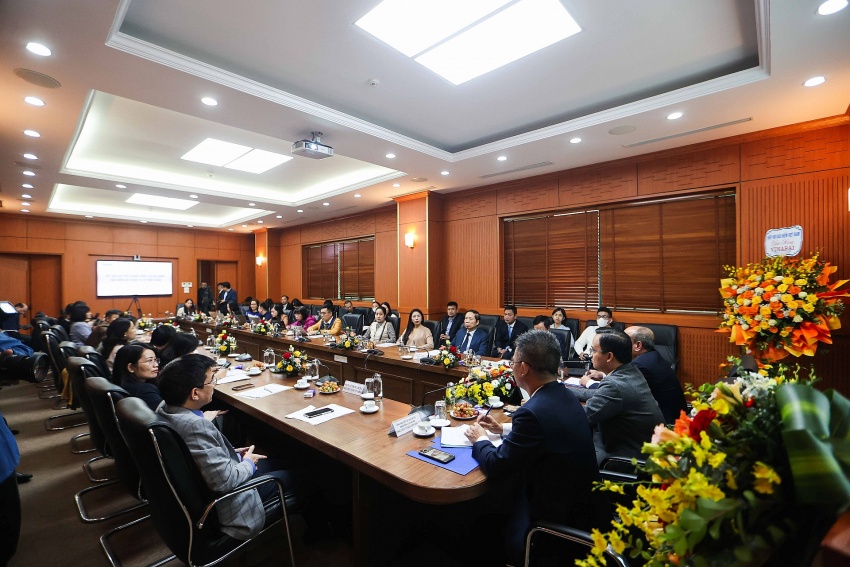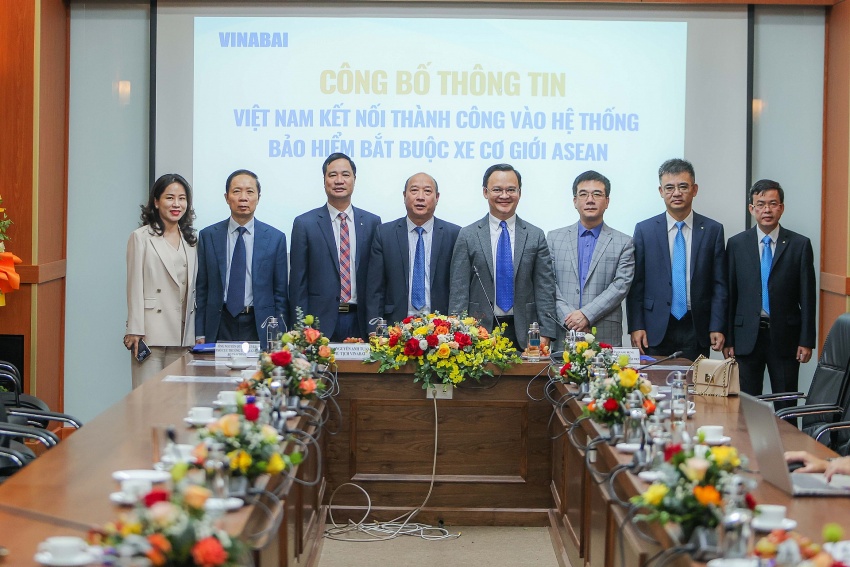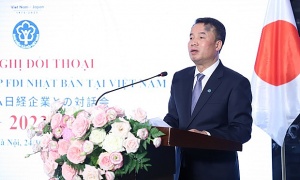Vietnam joins ASEAN Compulsory Motor Insurance system
 |
| Nguyen Anh Tuan, chairman of VINABAI |
The Vietnam National Bureau of Automobile Insurance (VINABAI) has implemented Protocol No.5 of the ASEAN Compulsory Motor Insurance programme, announcing Vietnam’s successful connection to the ACMI system on November 15.
From now on, motor vehicle owners from ASEAN member states travelling to Vietnam must register for compulsory civil liability motorist insurance.
The ACMI – the ASEAN compulsory motor insurance database system – is used as a data hub for member states participating in the system to issue insurance policies. This system is used in 10 ASEAN countries that have already implemented Protocol No.5. This paves the way to facilitate vehicles and goods transportation across ASEAN border gates.
In addition, The ACMI will then be connected with the ASEAN Customs Transit System to create an electronic one-stop mechanism for goods in transit procedures, promoting the implementation of the ASEAN Framework Agreement on the Facilitation of Goods in Transit (AFAFGIT).
Thanks to the successful connection to the ACMI system, Vietnam has become one of the leading countries in this respect, along with Thailand – the manager of the ACMI system – and Singapore.
Motor vehicle users can access this ACMI system to register for a blue card, which serves as proof that a motor vehicle has been issued an insurance policy that meets the minimum insurance requirements according to the regulation of civil liability insurance of motor vehicle owners in transit or destination countries in ASEAN.
 |
| At the press conference on Vietnam successfully connecting to the ASEAN Compulsory Motor Insurance system |
Nguyen Anh Tuan, chairman of VINABAI said, "Vietnam’s successful connection to the ACMI system has a special significance. In addition to confirming that ASEAN motor vehicles transiting into Vietnam need to register for compulsory motor insurance, this connection will help effectively promote the transportation of goods and vehicles between ASEAN member states, including Vietnam."
Tuan added that the insurance documents will have to be carried in the vehicle for inspection at the border by the authorities of the countries involved in the transit movement (hard or electronic copy). The competent authorities entrusted to enforce the insurance requirements are authorised to inspect the insurance certificates at any point along the designated routes.
Two years ago, an MoU on applying the ACMI system between 10 ASEAN countries was signed, aiming to realise the AFAFGIT content that was signed-off by the ASEAN finance ministers in April 2001 in Kuala Lumpur, Malaysia.
AFAFGIT requires each member state to establish a national agency to issue insurance policies, namely blue cards, and assist in handling accidents – including investigations, loss assessments, compensation settlements, and dispute resolutions in accordance with the regulations – caused by a vehicle possessing a blue card in the territory of that member country.
Current VINABAI chair Tuan is also vice chairman of the Insurance Association of Vietnam and chairman of the Board of Directors of Vietnam National Reinsurance JSC. VINABAI’s members are representatives from other relevant agencies such as the Insurance Supervisory Authority, Ministry of Finance, Traffic Police Department, Ministry of Public Security, National Traffic Safety Committee, Vietnam Road Administration, Border Guard Command, Insurance Association of Vietnam, and Bao Viet Insurance Corporation.
Bao Viet Insurance Corporation is the only Vietnamese insurance enterprise assigned to implement Protocol No.5. The company has discussed and agreed on the technical and professional issues to deploy electronic blue card issuance through the ACMI system.
 |
In Vietnam, connecting to the ACMI system is an important premise for motor vehicles in implementing Decree No.67/2023/ND-CP regulating the compulsory civil liability insurance of motor vehicle owners. This decree was issued by the government on September 6 (replacing Decree No.03/2021/ND-CP).
Specifically, motor vehicle owners in Vietnam must register for compulsory civil liability insurance for motor vehicle owners. This is also a common practice in many countries in the region and around the world to cover both people and property in the event of traffic accidents caused by motor vehicles, while also helping to minimise the financial burden on vehicle owners.
In Vietnam, VINABAI was established by the Minister of Finance in 2007 in accordance with the provisions of Protocol No.5.
In addition to participating in the signing of the aforementioned MoUs and working minutes, VINABAI has signed MoUs with the national agencies implementing Protocol No.5 in Laos and Cambodia, and cooperated with the Thai national agency to implement the protocol.
 | Banks juggle bancassurance quandary Some Vietnamese commercial banks have reported a dramatic dip in their bancassurance sales for the first half of the year as the sector navigates controversies and a historically low number of active life insurance contracts. |
 | Japanese firms take part in dialogue on social, health insurance Vietnam Social Security (VSS) on October 24 held a dialogue on social insurance and health insurance policies with 130 Japanese-invested enterprises operating in the north of Vietnam. |
 | Non-life insurance to engage customers The insurance landscape in Vietnam is undergoing massive change. The risks Vietnamese people are exposed to on a daily basis are on the rise and becoming increasingly unpredictable. |
 | Soaring compensation costs cast shadow on insurer business Despite a spike in premiums, many insurers suffered in terms of performance in 2022 on the back of soaring compensation costs. |
What the stars mean:
★ Poor ★ ★ Promising ★★★ Good ★★★★ Very good ★★★★★ Exceptional
Related Contents
Latest News
More News
- QBE Vietnam: 20-year journey of building trust and enabling resilience (November 20, 2025 | 14:25)
- Hanwha Life hosts training course in South Korea for Vietnamese fintech talents (November 20, 2025 | 09:51)
- Insurers accelerate post-typhoon recovery (October 28, 2025 | 15:31)
- Shinhan Life Vietnam builds growth on people strategy (October 07, 2025 | 09:45)
- Insurance sector initiates rapid response after Typhoon Bualoi devastation (October 03, 2025 | 18:25)
- Non-life insurers face mounting pressure after typhoon hits motor sector (October 02, 2025 | 18:59)
- Prudential Vietnam delivers responsible investment package (September 25, 2025 | 10:37)
- Insurers struggle to keep pace with EV rapid adoption (August 29, 2025 | 17:12)
- Non-life insurance market in sees bright spots in H1 despite rising challenges (August 28, 2025 | 16:21)
- Life insurance rebounds with renewed growth and trust (August 06, 2025 | 18:04)

 Tag:
Tag:


























 Mobile Version
Mobile Version